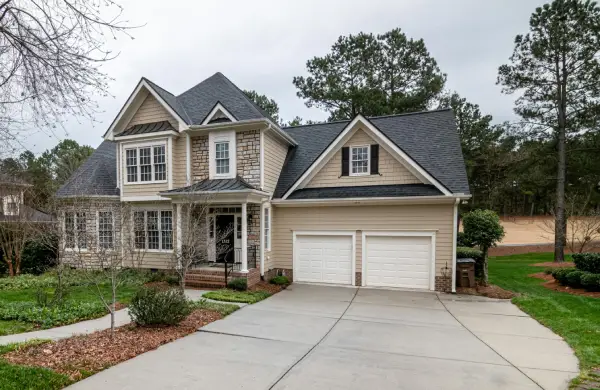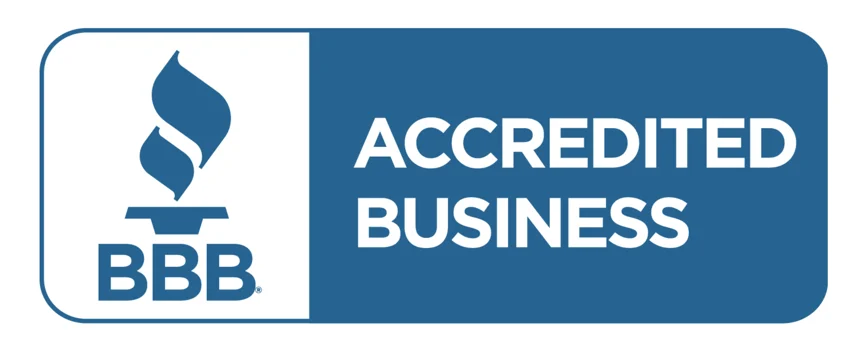How Much Does It Cost to Sell a House? You Might Be Shocked
Apr 19, 2025 | Hanna Cena
When you’re ready to move on from your home, one of the first questions that might come to mind is: How much does it cost to sell a house? It seems like selling should be simple—put up a sign, find a buyer, and move on. But the truth is, there are many expenses that pop up along the way. From agent commissions to small repairs, these costs can add up quickly.
In this guide, we’ll break down all the common (and hidden) costs you should expect, plus show you ways to save money—especially if you’re in West Michigan.
1. Understanding the Common Costs of Selling a Home
Let’s start with the basics. When you sell a house, you’re not just walking away with the buyer’s payment. Sellers usually cover multiple costs, such as:
- Real estate agent commission: Typically 5–6% of the home’s final sale price (split between your agent and the buyer’s agent).
- Home preparation: Think cleaning, staging, landscaping, and painting to get the house showing-ready.
- Repairs: These could be minor (patching walls) or major (roof leaks, plumbing).
- Closing costs: These vary by state but usually include taxes, legal fees, and more.
Source: Bankrate – Seller Closing Costs
These are just the basics—but the actual cost depends on how you sell.
2. Real Estate Agent Fees vs. Selling Without One
Agent Fees Can Be Steep
Most traditional home sales involve a real estate agent. While they offer expertise, they also take a cut—usually around 6% of the total sale. For a $250,000 house, that’s $15,000 right off the top.
Selling on Your Own (FSBO)
If you go the For Sale By Owner (FSBO) route, you can skip the listing agent’s fee, saving you 2.5–3%. However, you’ll still need to pay a buyer’s agent (unless the buyer is also unrepresented), and you’ll take on all the responsibilities yourself—pricing, marketing, negotiating, paperwork.
More on FSBO pros and cons from The Balance
In summary, FSBO can save you money, but only if you’re confident and have time to manage the sale.
3. What Are Seller Closing Costs?
Seller closing costs are the additional charges you’ll need to pay to officially transfer ownership of the property. These can include:
- Transfer taxes (varies by state and local municipality)
- Title insurance fees
- Escrow service fees
- Attorney fees (if required in your state)
- Prorated property taxes
These fees are often between 1–3% of your home’s sale price. For example, on a $250,000 sale, you could be paying another $2,500–$7,500 in closing costs.
Tip: Make sure to ask for a settlement statement before closing to see where every dollar goes.
4. Repairs and Improvements: When Is It Worth It?
Another major question many sellers ask is whether they should fix things before listing. While fresh paint and curb appeal upgrades can go a long way, big renovations may not offer a great return.
Minor Repairs That Pay Off:
- Patching holes in walls
- Replacing outdated light fixtures
- Cleaning grout or carpets
- Replacing broken hardware
Big Renovations to Think Twice About:
- Kitchen overhauls
- Roof replacement (unless damaged)
- Full bathroom remodels
Buyers often expect a lived-in home—not perfection. Spending thousands on big updates doesn’t guarantee a higher sale price. Sometimes, it’s better to price the home slightly lower and skip the stress.
5. Hidden Costs That Sellers Often Forget
Even if you’ve planned for the big expenses, don’t forget the “little” ones that sneak in:
- Ongoing utility bills until the house closes
- Homeowners association (HOA) fees
- Professional cleaning or junk removal
- Pre-inspections (optional but useful)
- Time on the market—each month it doesn’t sell, you’re paying taxes, insurance, and upkeep
These add up quickly. Depending on your location and how long the house sits, hidden costs could total $1,000–$3,000 or more.

6. How Much Does It Cost to Sell a House? (Let’s Crunch the Numbers)
So, how much does it cost to sell a house? The truth is that every property, market, and sales method is a little different. Even so, sellers in the U.S. (and West Michigan) pay 8 %–10 % of the final sale price once commissions, closing fees, repairs, and holding costs are tallied.
Below is a side‑by‑side look at three common price points so you can see exactly where the money goes. Use this as a starting point, then plug in your own numbers for a more precise estimate.
| Entry‑Level Home | Mid‑Range Home | Higher‑End Home | |
| Likely Sale Price | $175 000 | $300 000 | $450 000 |
| Listing Agent (3 %) | $5 250 | $9 000 | $13 500 |
| Buyer Agent (3 %) | $5 250 | $9 000 | $13 500 |
| Closing Costs (2 %) | $3 500 | $6 000 | $9 000 |
| Typical Repairs/Staging | $2 000 | $4 000 | $6 000 |
| Holding Costs (2 months) | $1 000 | $1 800 | $2 800 |
| Total Out‑of‑Pocket | $17 000 | $29 800 | $44 800 |
Note: Numbers are illustrative averages. Actual costs vary by condition, location, and market speed.
Why These Costs Add Up Quickly
- Commissions compound. Even a modest price increase adds thousands in agent fees.
- Closing fees scale with price (transfer tax, title insurance, and escrow charges are percentages).
- Carrying costs (mortgage, taxes, utilities) keep ticking until the deed transfers, which in Michigan is often 60–90 days after listing.
- Repair budgets expand when inspections uncover hidden issues.
If you’d like an online calculator, try NerdWallet’s home‑sale cost estimator for a quick estimate. citeturn0news3
When a Cash Offer Saves You Money
Because a direct cash buyer like Hometown Development eliminates commissions, covers most closing fees, and buys as‑is, the effective cost to sell often shrinks to 1 %–2 % (mostly state transfer tax). As a result, many sellers keep nearly the same net proceeds—without months of uncertainty.
In the next section we’ll compare real‑world totals so you can see the difference first‑hand.
Want to see a live calculator? Try NerdWallet’s Cost to Sell a House Estimator
7. How to Save Money When Selling Your Home
If you’ve just realized how expensive selling a house can be—don’t panic. You actually have more control than you might think. Many sellers are surprised to learn how much they can save simply by avoiding the traditional path or rethinking their strategy.
Here are proven, practical ways to save money when selling your home:
🏡 1. Skip the Agent and Sell Directly
Real estate agents can add value, but they also charge thousands in commissions. If your goal is to walk away with more of your equity, consider selling For Sale By Owner (FSBO) or working with a local cash buyer like Hometown Development. This alone can save you 5–6% of your home’s value.
🔨 2. Avoid Costly Repairs by Selling As-Is
Don’t have time—or money—for home improvements? No problem. A traditional buyer might request upgrades, but a cash buyer will purchase your home exactly the way it is. That means no contractor quotes, no last-minute fixes, and no renovation headaches.
📸 3. Cut Unnecessary Listing Costs
Things like professional photography, home staging, and premium online listings all add up. While these can be helpful in a slow market, they aren’t always necessary—especially if you sell off-market. If your home is priced right or going to a cash buyer, you can skip these extras and save.
💡 4. Sell Faster to Reduce Carrying Costs
The longer your house sits on the market, the more you pay in monthly expenses like:
- Mortgage interest
- Property taxes
- Utilities
- Home insurance
A quick close, especially through a cash offer, can save you hundreds—or even thousands—of dollars just by cutting your timeline down from months to days.
💼 5. Compare All of Your Selling Options
It’s easy to assume that the highest offer is the best offer. But that’s not always true. A higher offer from a traditional buyer might require:
- Repairs after inspection
- Appraisal negotiations
- Long closing timelines
- Contingencies that could fall through
By contrast, a cash buyer offers certainty, no delays, and no surprise deductions. So even if the offer is slightly lower, your net proceeds could be the same—or even higher.
🧾 6. Ask for a Seller Net Sheet
Whether you work with a Realtor, a cash buyer, or a title company, always ask for a Seller Net Sheet. This document will give you a breakdown of:
- Estimated agent fees
- Closing costs
- Repair concessions
- Mortgage payoff
- Expected cash to you at closing
It’s one of the best tools to help you understand where you’re saving—or overspending.
💸 7. Work With a Local Cash Buyer Who Covers the Costs
Companies like Hometown Development buy homes across West Michigan and cover most of the costs for you. That includes:
- No commissions
- Most or all of your closing costs
- Buying your home as-is
- Flexible move-out dates
This means you can walk away with more of your home’s value—and less stress.
Learn more about how selling to a cash buyer works
8. How Much Does It Cost to Sell a House in West Michigan?
If you’re selling in Kent, Ottawa, or Ionia County, your costs may vary slightly—but the basics still apply. Taxes, title fees, and commission structures are all very similar across the state. However, one thing that makes a difference is whether you sell traditionally or to a local cash buyer.
At Hometown Development, we’re based in West Michigan and offer:
- No repair requests
- No agent commissions
- We cover most closing costs
- A fair cash offer within 48 hours
- Closings in as little as 7 days
We’ve helped homeowners in:
- Kent County (Grand Rapids, Kentwood, Wyoming, Rockford, Caledonia)
- Ottawa County (Holland, Grand Haven, Jenison, Hudsonville)
- Ionia County (Belding, Saranac)
- Nearby areas (Fruitport, Muskegon, Norton Shores, Wayland)
Final Thoughts: Selling a House Isn’t Free—But It Doesn’t Have to Be Stressful
If you’re asking, “how much does it cost to sell a house,” the honest answer is: it depends. But with the right plan and the right buyer, you can keep more money in your pocket.
Whether you want to go the traditional route or skip the hassle and sell to a local buyer like Hometown Development, understanding your costs is the first step to making the best choice for your situation.







